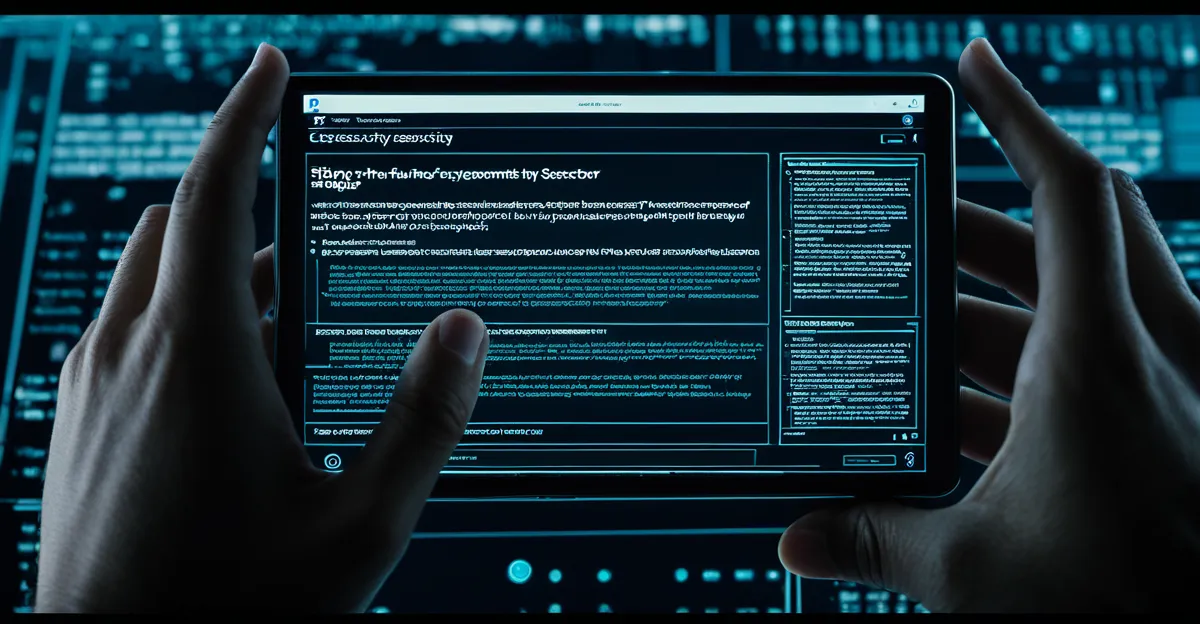Key Trends Shaping the Future of Cybersecurity in the UK Tech Sector
Understanding the future of UK cybersecurity requires examining how evolving threats and technological advances influence the UK tech industry security landscape. One of the most significant trends is the increasing complexity of attack vectors. UK tech companies face advanced threats such as sophisticated phishing, supply chain attacks, and state-sponsored intrusions that continually adapt to bypass traditional defences. These evolving attack patterns necessitate more dynamic and intelligent cybersecurity measures.
A pivotal development in response to these threats is the growth of AI and automation in threat detection and response. Artificial intelligence-powered systems can analyze vast amounts of data in real time, identifying anomalies faster than manual methods. Automation enables quicker incident response, reducing the window of vulnerability. As a result, UK cybersecurity initiatives increasingly integrate AI-based tools to strengthen defensive capabilities.
In the same genre : What’s Driving the Latest Innovations in UK’s Tech Industry?
Another crucial trend affecting the future of UK cybersecurity is the rising reliance on cloud and hybrid infrastructures. Tech firms across the UK are migrating operations to cloud environments for flexibility and scalability. However, this shift introduces new security challenges, such as misconfigured cloud resources and increased attack surfaces. Consequently, securing these environments demands specialized strategies that combine traditional security models with cloud-native practices.
Together, these trends underscore a cybersecurity landscape that is both more challenging and more technologically advanced. UK tech companies must stay ahead by adopting AI-driven protection, understanding evolving threats, and securing increasingly complex infrastructures to ensure robust UK tech industry security.
Also read : How Can Emerging UK Tech Innovations Shape the Future of Global Connectivity?
Regulatory Landscape and Its Influence on Cybersecurity
The future of UK cybersecurity is deeply intertwined with the evolving UK cybersecurity regulations landscape. As the UK government updates compliance mandates and data protection laws UK, tech companies face heightened responsibilities to protect sensitive data and maintain robust security postures. Upcoming regulatory changes are designed to address emerging risks posed by increasingly sophisticated cyber threats, ensuring that standards keep pace with new technological challenges.
One major component shaping UK tech industry security is the UK GDPR framework, which mandates strict data handling and breach notification requirements. Non-compliance can lead to significant penalties, making adherence essential for all tech firms operating in or with the UK market. Beyond GDPR, there are sector-specific regulations and proposed amendments aimed at strengthening resilience against incidents like supply chain attacks and ransomware campaigns.
To meet these compliance demands, UK tech companies are adopting comprehensive adaptation strategies. These include integrating regulatory requirements directly into their cybersecurity policies and automating compliance monitoring to reduce human error. Compliance is no longer a one-time checkbox but an ongoing process requiring continual updates aligned with the latest cybersecurity trends UK. By proactively aligning with regulatory expectations, firms not only avoid penalties but also reinforce trust with partners and customers, securing their position in a competitive digital economy.
Technological Innovations and Their Role in Shaping Security
Technological innovation is transforming the future of UK cybersecurity by introducing powerful tools and strategies that enhance UK tech industry security. Among these, the integration of AI and machine learning plays a central role in modern defence systems. AI-driven cybersecurity solutions analyze vast datasets to detect anomalies and potential threats instantly, reducing reliance on slower, manual processes. This proactive threat detection enables faster responses to sophisticated attack vectors that traditional methods may miss.
Quantum computing represents another cutting-edge innovation reshaping the cybersecurity landscape UK faces. While still emerging, quantum technologies promise to advance both offensive and defensive capabilities significantly. In the context of security, quantum computing poses risks to existing encryption algorithms, necessitating the development of quantum-resistant protocols. UK tech firms must monitor these developments closely, preparing to adopt quantum-safe cryptographic standards to safeguard sensitive information against future quantum-enabled attacks.
The adoption of Zero Trust architecture marks a fundamental shift in cybersecurity innovation UK companies are embracing. Unlike conventional perimeter-based security models, Zero Trust assumes that no user or device is automatically trustworthy. This approach requires continuous verification of identity and strict access controls, even within internal networks. By implementing Zero Trust principles, UK tech organisations can mitigate risks posed by insider threats and lateral movement attacks, thereby strengthening overall security postures.
Together, the combined influence of AI, quantum computing, and Zero Trust frameworks is driving a technological revolution in the UK cybersecurity field. These innovations empower companies to stay ahead of rapidly evolving threats while future-proofing their defence strategies in an increasingly complex security environment.
Skills, Workforce, and Talent Shortages in Cybersecurity
The future of UK cybersecurity faces a significant challenge from the ongoing cybersecurity skills gap UK. Demand for qualified professionals in the UK tech industry security sector continues to outpace supply, creating a talent shortage that risks weakening organisational defences. This shortage is driven both by the rapid evolution of attack vectors and the increasing complexity of technologies like AI and cloud computing, which require specialised expertise to manage effectively.
Emerging roles reflect the changing landscape, with a rising need for skills in areas such as AI-driven threat detection, quantum-safe encryption, and Zero Trust implementation. Professionals must be proficient not only in traditional cybersecurity fundamentals but also in new tools and methodologies critical to future security frameworks. For example, abilities in real-time incident response automation and hybrid cloud security have become essential.
To tackle the talent demand UK cybersecurity faces, various initiatives aim to expand and upskill the tech workforce. These include government-backed training programmes, partnerships between academia and industry, and targeted reskilling efforts focused on underrepresented groups. Organisations are also investing more heavily in continuous professional development, recognising the importance of keeping skills current amid shifting cybersecurity trends UK.
Addressing this gap is not only vital for securing the UK’s digital infrastructure but also for maintaining the competitive edge of the sector globally. By fostering a larger, more skilled cybersecurity workforce, the UK tech industry can better anticipate threats and adapt to emerging challenges in the future of UK cybersecurity.











